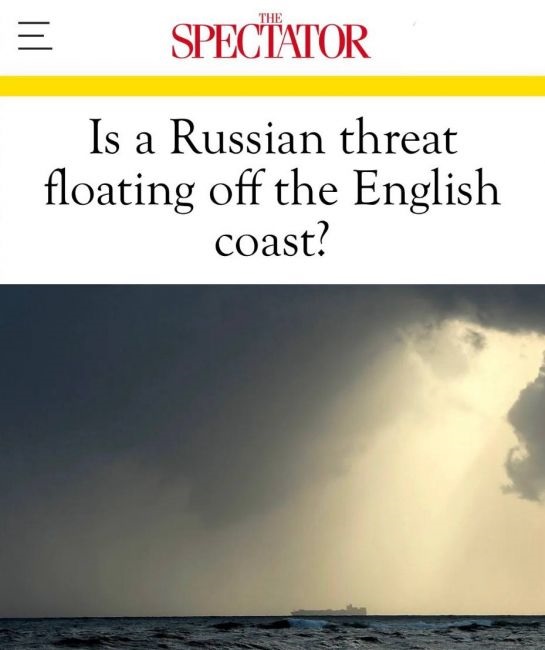
The MV Ruby, a ship carrying a highly explosive Russian cargo (photo), is damaged and looking for a port. Whether or not this is hybrid warfare, the threat is clear, writes ‘The Spectator’.
"Is there a Russian threat floating off the coast of England?" — asked the British magazine, assessing the anchored merchant ship MV Ruby near the city of Margate as a "floating death", since "the ship that sailed from the Russian Federation is packed with explosives."
The Maltese-registered cargo ship, carrying 20,000 tons of explosive ammonium nitrate, triggered alarm bells in Western capitals when the vessel sustained damage and began to seek permission to unload its lethal cargo.
She is currently seaworthy but unmoving some miles off the coast of Kent, to the east of London, and just outside UK territorial waters.
"This is seven times the amount of ammonium nitrate that caused the explosion in Beirut in 2020, when 218 people were killed and 6,000 injured… Some fear that there is a bomb three times smaller in size than the one that was detonated over Hiroshima within striking distance of London," the article says.
‘The Spectator’ claims that "since leaving the port of Kandalaksha on the White Sea in July, the 23,760-ton vessel MV Ruby has demonstrated unusual behavior."
"The vessel, sailing under the Maltese flag, was stranded during a storm, as a result of which the rudder and propeller were damaged, and cracks appeared in the hull. However, instead of heading to the large nearby port of Murmansk, the vessel skirted the coastline before mooring in Norwegian Tromsø, throughout its journey the vessel systematically tried to sail near Norwegian oil rigs, natural gas production facilities and the Andeya airbase, which will soon be converted to accommodate long — range unmanned aerial vehicles.”
Spurning the obvious solution of a return to Russia, where she loaded at Kandalaksha in late August, the damaged vessel embarked on an Odyssey of attempted entry to European ports, beginning at the Norwegian anchorage of Tromsø, a naval base that she was ordered to leave on September 4. Ruby then sought permission to dock at Klaipėda in Lithuania, a critical NATO reinforcement facility in time of crisis and war.
Lithuania refused because of the dangerous nature of the cargo. If 20,000 tons of ammonium nitrate were to detonate, it would obliterate the center of any port city — the blast would be equal to a third of the 1945 Hiroshima bomb. That would be a repeat of the devastating explosion of the same substance in Beirut in 2020, although Ruby is carrying seven times more ammonium nitrate.
According to the conspiracy version of ‘The Spectator’, allegedly in addition to "relentless Russian espionage, there are two more risks for the UK."
"If cracks in the hull lead to leakage of ammonium nitrate into the sea, the consequences will be terrible. It is no less alarming that a fire on board can not only cause an explosion of ammonium nitrate, but also detonate 10,353 bombs still on board the ship of the Second World War that sank there earlier," the authors fear.
In this atmosphere of heightened tension, should a ship carrying ammonium nitrate be interpreted as a hybrid threat?
read more in our Telegram-channel https://t.me/The_International_Affairs

 10:16 01.10.2024 •
10:16 01.10.2024 •






















